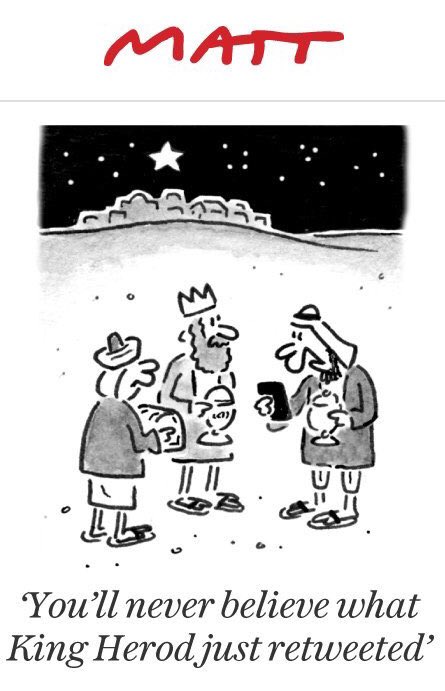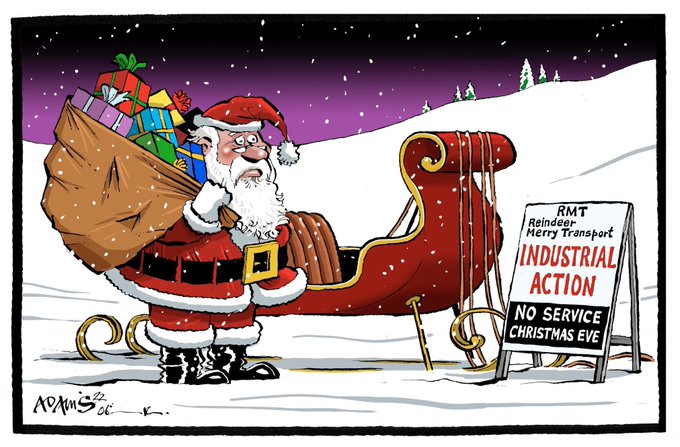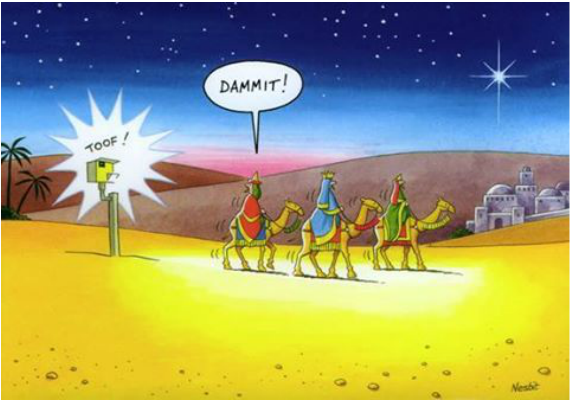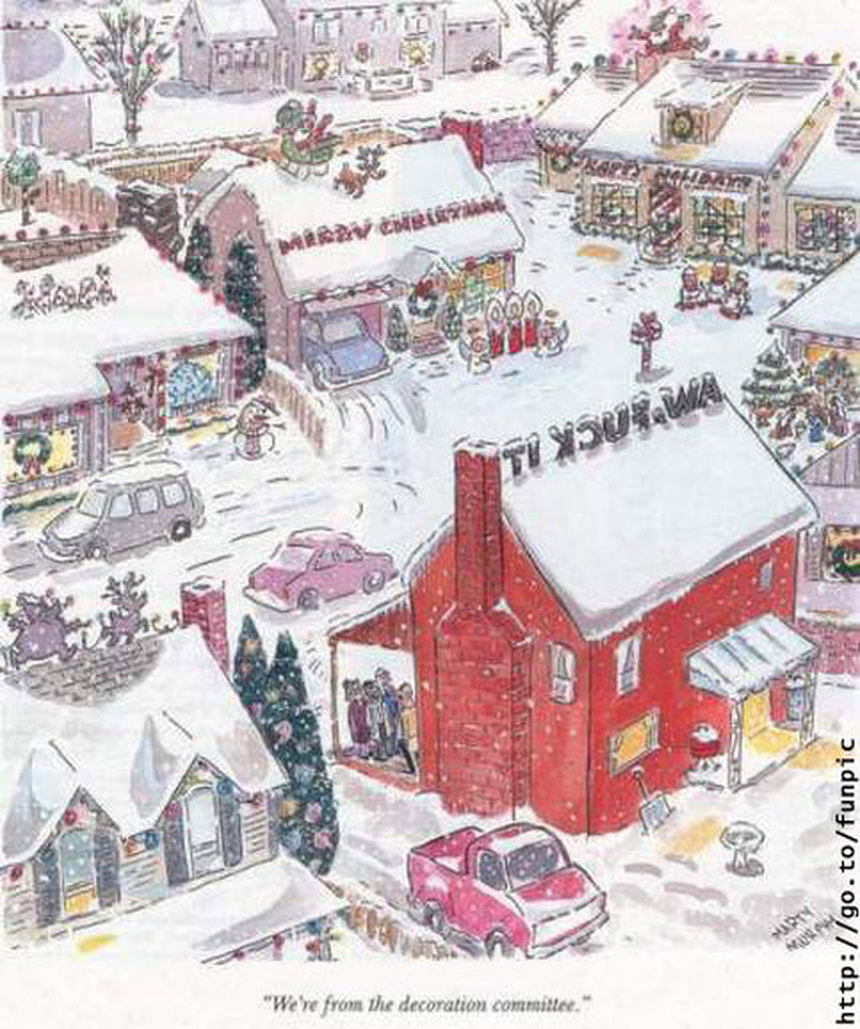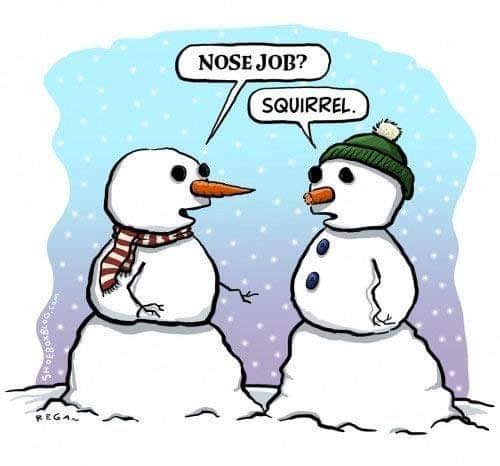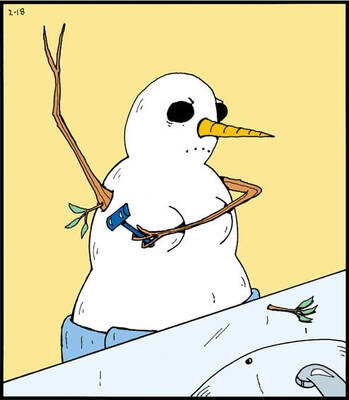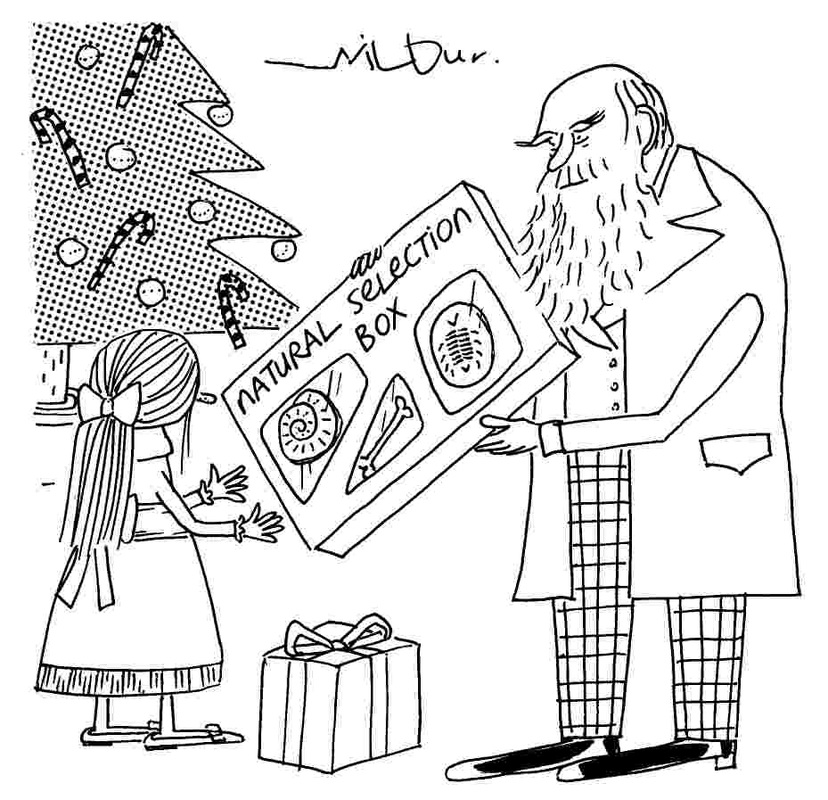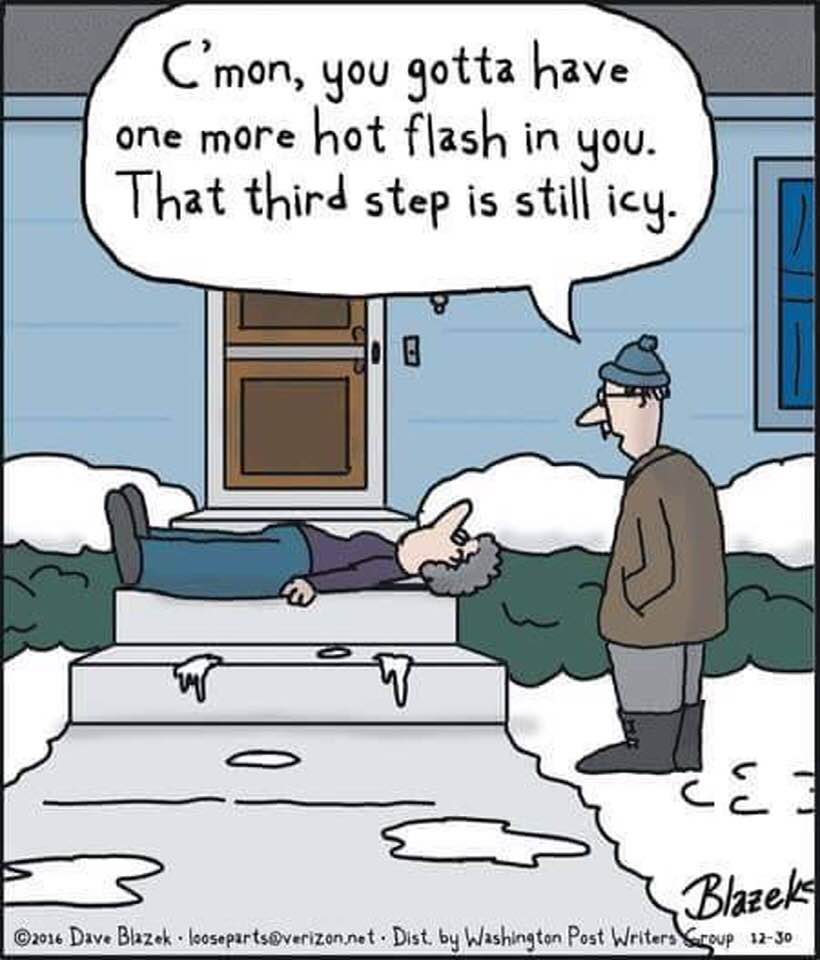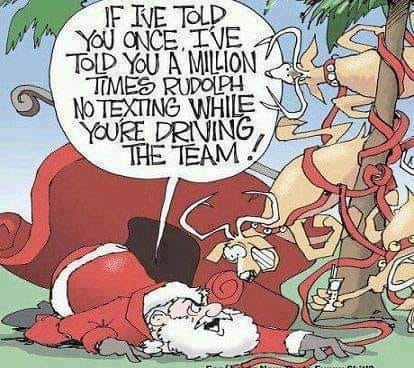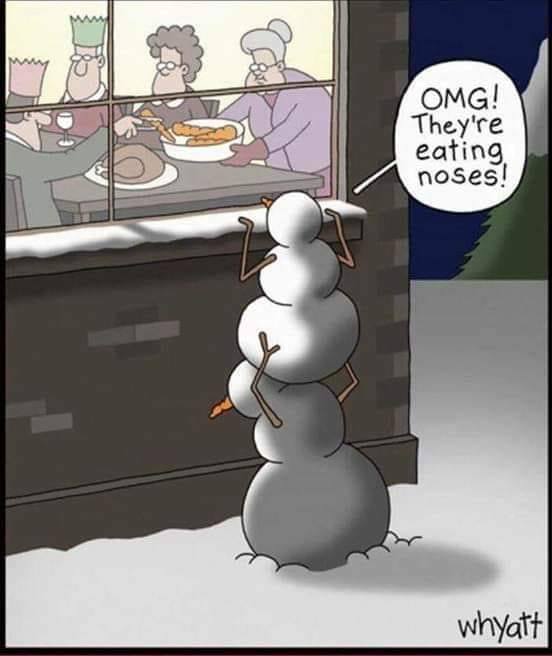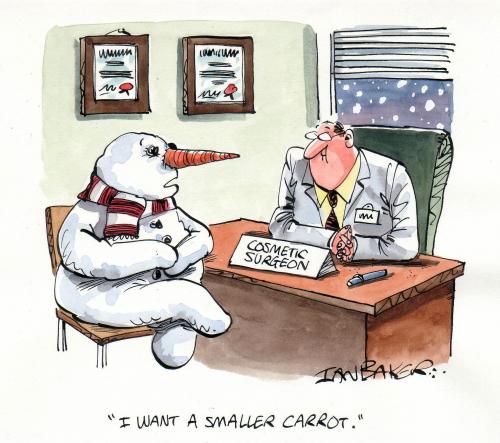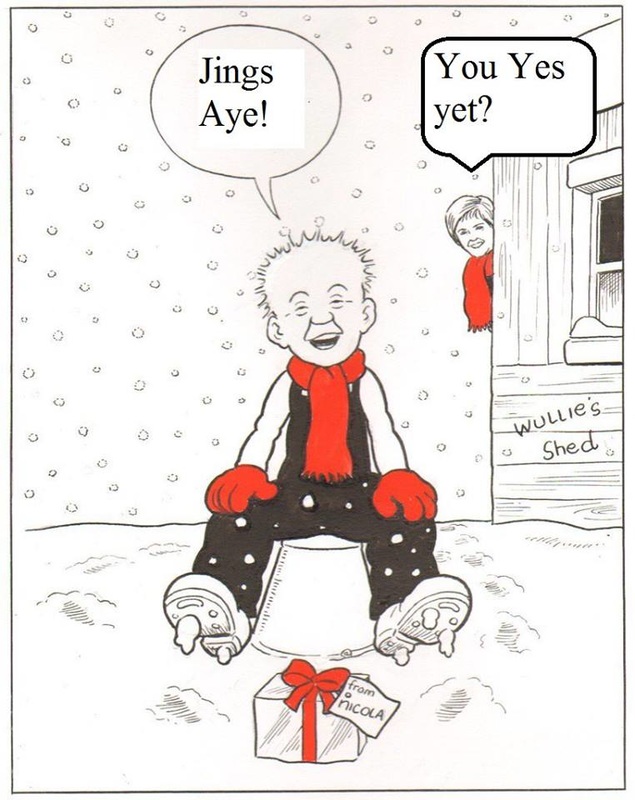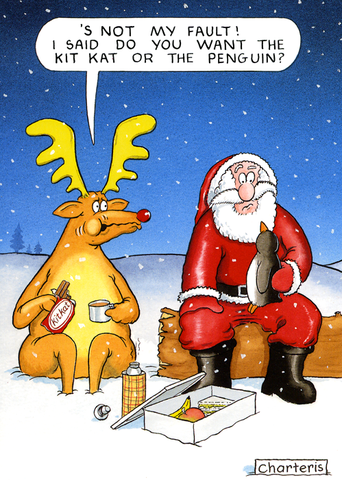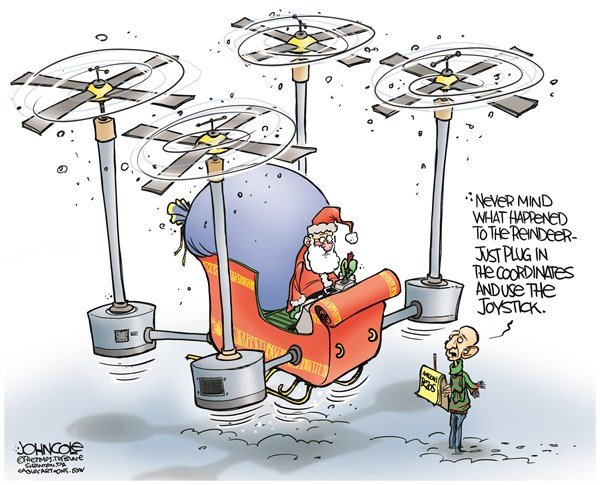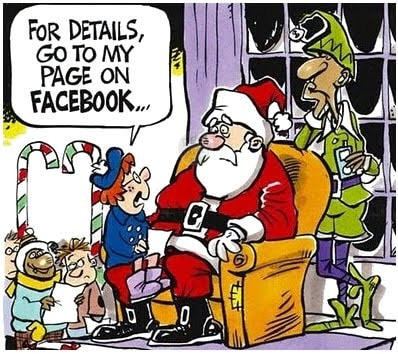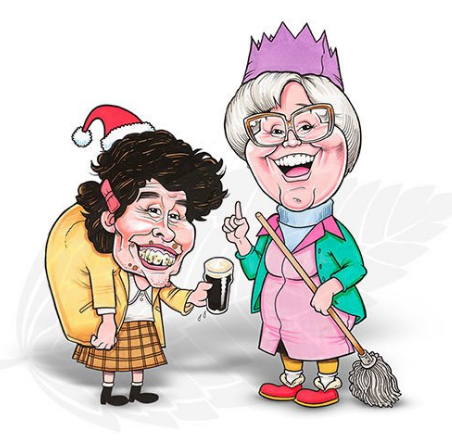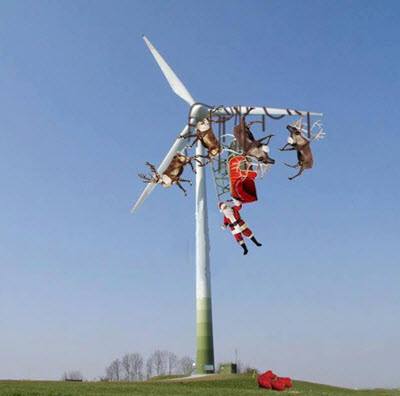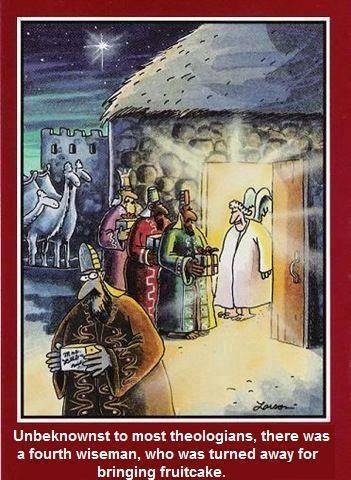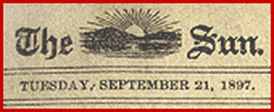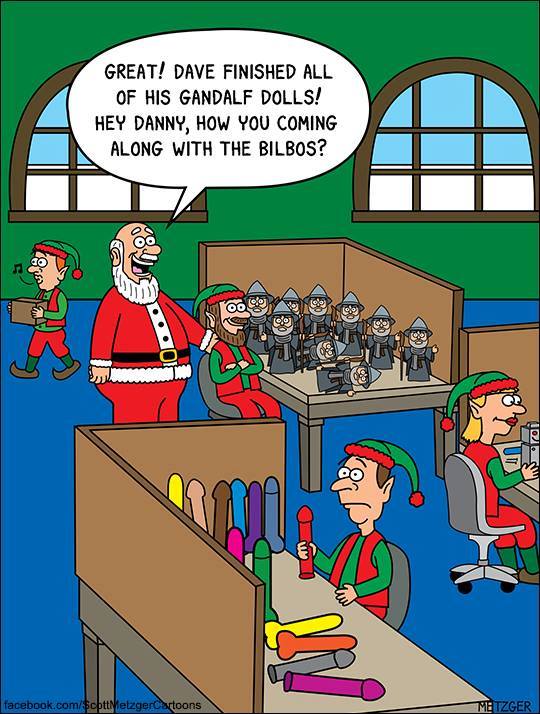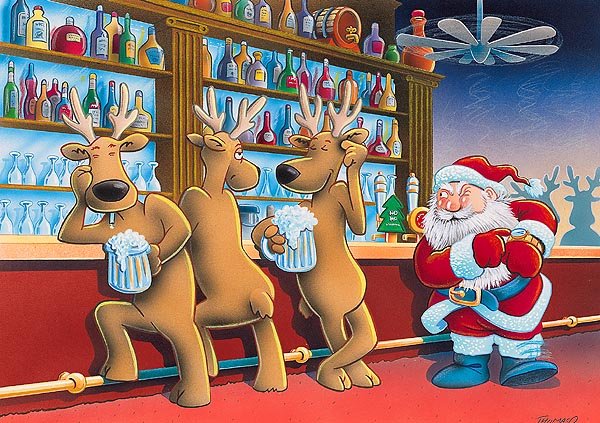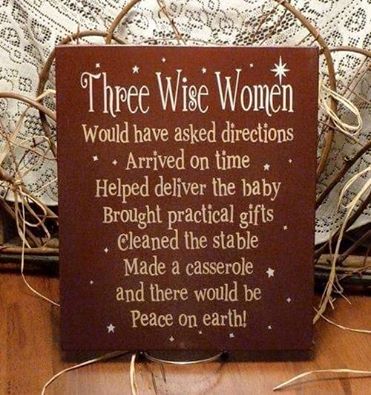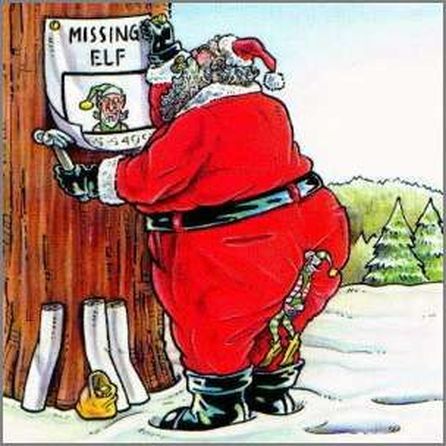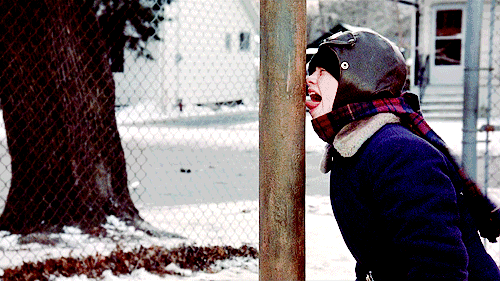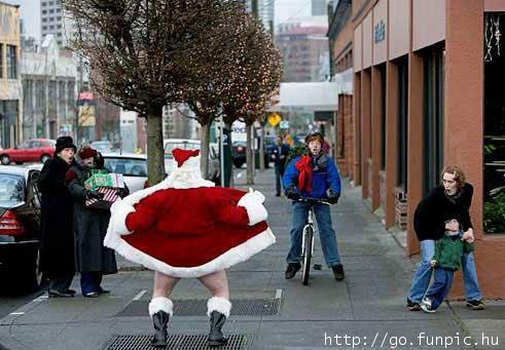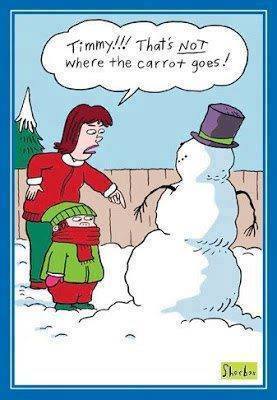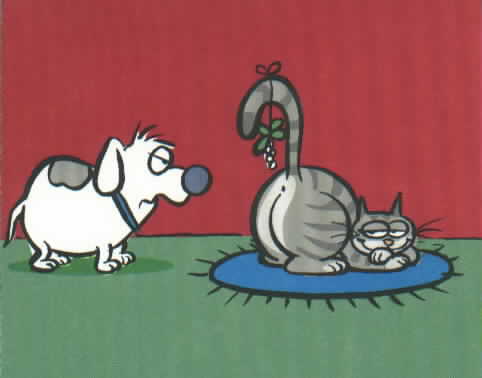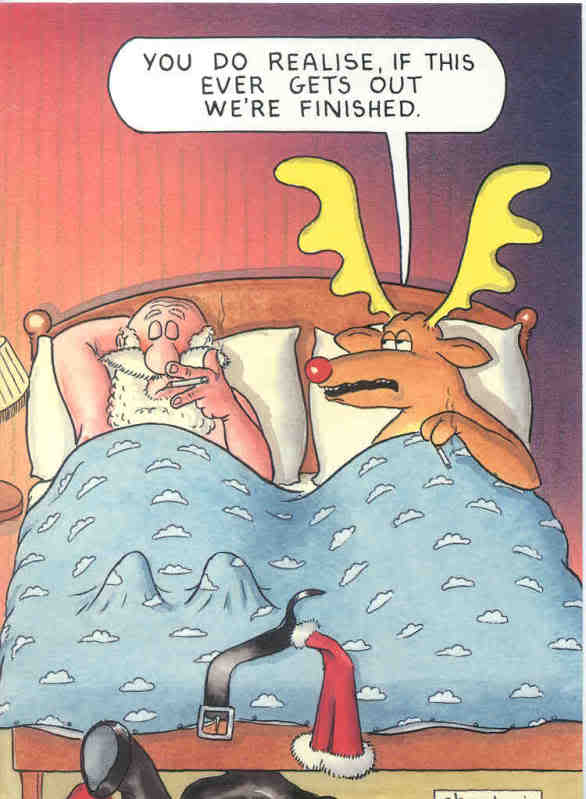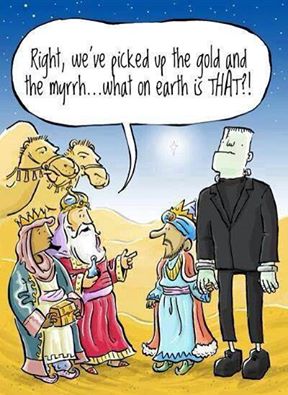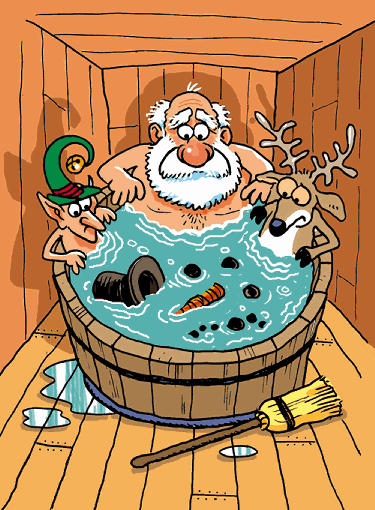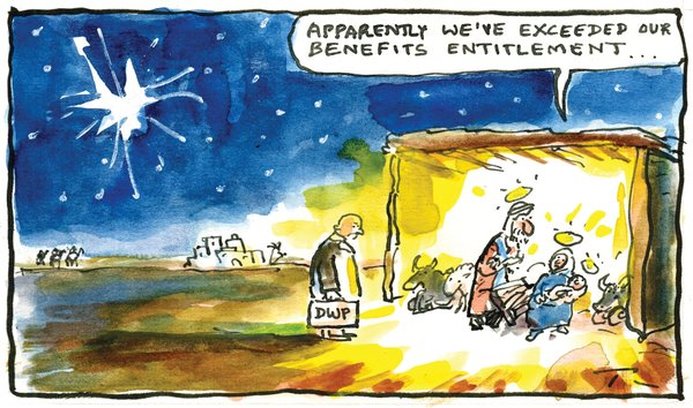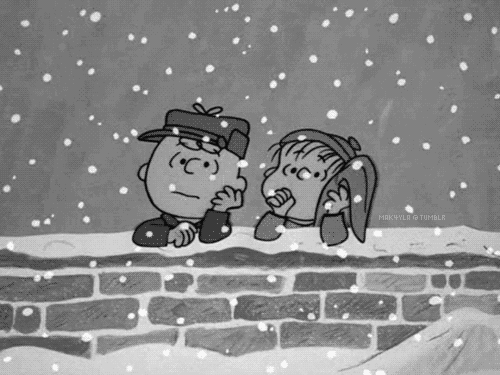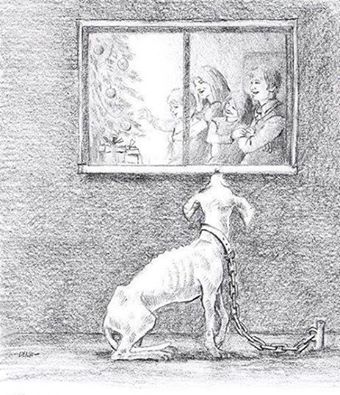I tried not to, but failed miserably
Do not ever be embarrassed by your dad - Someday he will not be there and you will regret the moments terribly...
I was searching for the lyrics of 'Have Yourself A Merry Little Christmas' - I often post cartoons on Facebook and use a parody of a well known song as a strapline, but I was surprised and saddened to find the original lyrics written for the Christmas movie ' Meet Me In St Louis' in 1944 while the Second World War was still raging.
Have yourself a merry little Christmas.
It may be your last.
Next year we may all be living in the past.
Have yourself a merry little Christmas.
Pop that champagne cork.
Next year we may all be living in New York.
No good times like the olden days.
Happy golden days of yore.
Faithful friends who were dear to us.
Will be near to us no more.
But at least we all will be together.
If the Lord allows.
From now on, we'll have to muddle through somehow.
So have yourself a merry little Christmas now.
It was of course, changed to the version that we know so well.
A PC Christmas (De-Americanised without apology)
Twas the night before Christmas, and Santa's a wreck...
How to live in a world that's politically correct?
His workers no longer would answer to "Elves", (a huh huh, I'm all shook up?)
"Vertically Challenged" they were calling themselves.
And labour conditions at the north pole
Were alleged by the union to stifle the soul.
Four reindeer had vanished, without much propriety,
Released to the wilds by the Animal Rights Society.
And equal opportunity had made it quite clear
That Santa had better not use just reindeer.
So Dancer and Donner, Comet and Cupid,
Were replaced with 4 pigs, and you know that looked stupid! (but pigs DO fly!)
So, half of the reindeer were gone; and his wife,
Who suddenly said she'd enough of this life,
Joined a self-help group, packed, and left in a whiz,
Demanding from now on her title was Ms.
And as for the gifts, why, he'd ne'er had a notion
That making a choice could cause such commotion.
Nothing of leather, nothing of fur,
Which meant nothing for him. And nothing for her.
Nothing that might be construed to pollute.
Nothing to aim. Nothing to shoot.
Nothing that clamoured, or made lots of noise.
Nothing for girls, nothing for boys.
Nothing that claimed to be gender specific.
Nothing that's warlike or non-pacicific. (Had to, for the rhyme - sorry!)
No chocolate or sweets...they were bad for the tooth.
Nothing that seemed to embellish a truth.
And fairy tales, while not yet forbidden,
Were like Teddies or Gollies, better off hidden.
For they raised the hackles of those psychological
Who claimed the only good gift was one ecological.
No rugby, no football...someone could get hurt;
Besides, playing sports exposed kids to dirt.
Dolls they were sexist, and should be passé
And Nintendo would just rot your whole brain away.
So Santa just stood there, broken, perplexed;
He just couldn’t figure out what to do next.
He tried to be merry, tried to be gay,
But you've got to be careful with that word today.
His sack was quite empty, limp to the ground;
Nothing acceptable was to be found.
Something special was needed, a gift that he might
Give to all, without angering left or the right.
A gift that would satisfy, with no indecision,
All groups of people, every religion;
Every ethnicity, every hue,
Everyone, everywhere... jings, - even you!
So here is that gift, it's price beyond worth...
"May you and ALL men, enjoy Peace on Earth."
My own personal recollections...
With all the hubbub over Christmas shopping and the fact that Christmas seems to start earlier every year, which seems to diminish it so much in the eyes of not only those who remember a simpler, more meaningful event, but also no doubt in children who now are exposed to endless hours of advertising in the name of the great God of profit, wanting ever more expensive presents which are often soon discarded. I thought I would head back to some of my own early Christmases, how much they meant, and how much now over half a century later I still remember them vividly.
In the late 50s and early 60s, a local farmer - permanently ruddy faced after his experience in a POW camp during WWII - would arrive around six on Christmas Eve with his horse and cart (sometimes a sled if there was enough snow) dressed up in a Santa outfit that had seen many years of use, but it was more genuine than any ever seen in recent years. Coming down Market Street into the market in Carluke and stopping to hand out oranges from his sack to all the grateful youngsters.
Our family were by no means well off, but we were fed and clad and brought up well - My dad worked in his own business from a garage at the back of our house doing car body repairs. He was very good with his hands in both metal and wood, and some of the toys he made for us were phenomenal. I remember one year he built a large wooden lorry, all hand-crafted with lights that worked. Another year a rocking horse. Once I had asked for a fort and went into his garage unexpectedly a few days before Christmas to see a partly built huge wooden castle with a drawbridge and turrets etc. - He obviously hadn't expected me but quickly threw a dust sheet over it - I asked what it was but he told me someone had paid him to paint it for them. I remember saying something about me wanting a fort - an American fort - for Christmas. Sure enough on Christmas morning there on my chair in the living room was a beautiful handmade frontier fort - with all the bits and pieces we had seen in the Westerns. Strangely that year my younger brother received a castle with knights and all the things you might see in a medieval English fort! He hadn't asked for it but was none-the-less delighted.
The best of all though was probably the heavy-gauge metal double decker bus perfectly finished with his panel-beater's hands, all the seats and the stairs at the rear carefully detailed and sprayed in bright red. - Big enough and certainly robust enough to ride upon. It remained in our family for several years often with a new paint job to be given to younger siblings, cousins etc. but eventually came back into our hands in the late 60s. At that time my parents were short-term foster parents to children mostly from the then children's home in Strathaven. So that's where the bus went. The home is now long closed and we know not what happened to the bus, but it was solid enough to last the many years since and may well still be in existence. It was totally unique.
I often think now how many will be able to look back over their lives and remember so vividly their 'phones or tablets that they received more than 50 years previously.
Not many I guess.
With all the hubbub over Christmas shopping and the fact that Christmas seems to start earlier every year, which seems to diminish it so much in the eyes of not only those who remember a simpler, more meaningful event, but also no doubt in children who now are exposed to endless hours of advertising in the name of the great God of profit, wanting ever more expensive presents which are often soon discarded. I thought I would head back to some of my own early Christmases, how much they meant, and how much now over half a century later I still remember them vividly.
In the late 50s and early 60s, a local farmer - permanently ruddy faced after his experience in a POW camp during WWII - would arrive around six on Christmas Eve with his horse and cart (sometimes a sled if there was enough snow) dressed up in a Santa outfit that had seen many years of use, but it was more genuine than any ever seen in recent years. Coming down Market Street into the market in Carluke and stopping to hand out oranges from his sack to all the grateful youngsters.
Our family were by no means well off, but we were fed and clad and brought up well - My dad worked in his own business from a garage at the back of our house doing car body repairs. He was very good with his hands in both metal and wood, and some of the toys he made for us were phenomenal. I remember one year he built a large wooden lorry, all hand-crafted with lights that worked. Another year a rocking horse. Once I had asked for a fort and went into his garage unexpectedly a few days before Christmas to see a partly built huge wooden castle with a drawbridge and turrets etc. - He obviously hadn't expected me but quickly threw a dust sheet over it - I asked what it was but he told me someone had paid him to paint it for them. I remember saying something about me wanting a fort - an American fort - for Christmas. Sure enough on Christmas morning there on my chair in the living room was a beautiful handmade frontier fort - with all the bits and pieces we had seen in the Westerns. Strangely that year my younger brother received a castle with knights and all the things you might see in a medieval English fort! He hadn't asked for it but was none-the-less delighted.
The best of all though was probably the heavy-gauge metal double decker bus perfectly finished with his panel-beater's hands, all the seats and the stairs at the rear carefully detailed and sprayed in bright red. - Big enough and certainly robust enough to ride upon. It remained in our family for several years often with a new paint job to be given to younger siblings, cousins etc. but eventually came back into our hands in the late 60s. At that time my parents were short-term foster parents to children mostly from the then children's home in Strathaven. So that's where the bus went. The home is now long closed and we know not what happened to the bus, but it was solid enough to last the many years since and may well still be in existence. It was totally unique.
I often think now how many will be able to look back over their lives and remember so vividly their 'phones or tablets that they received more than 50 years previously.
Not many I guess.
Sarah Ann Harris
When you think of Christmas, which food springs to mind? Perhaps turkey, mince pies or mulled wine? For me, it’s the festive fruit tart my grandmother baked every year, to be eaten on Christmas Eve. When we settled down to eat dessert on 24 December, after all the hustle and bustle of festive preparations, journeys across the country and the tensions that often come with a family Christmas, the serving of the tart was a signal to relax.
But when my grandmother died unexpectedly in 2016, we couldn’t find the recipe anywhere. We scoured her kitchen, flicking through cookbooks and notes, but there was no sign of it. Her recipe, it seemed, had died with her.
That Christmas was brutal. Our celebrations were muted. Family members would dissolve into tears whenever Little Donkey, one of her favourite carols, played. Everywhere I looked, there were holes where Grandma should have been. She should have been sitting on her usual stool as we opened our presents. She should have been perched on the kitchen stairs while dinner was prepared, her offers of help being batted away. She should have been prodding us out of the door for one of her “little ambles” to walk off the mince pies. She should have been dishing up her tart on Christmas Eve.
For most of my life, my grandmother was the fittest older person I had ever met. Her great passion in life, aside from her family, was walking. She was most herself tramping along a footpath, eating a packed lunch in a sodden field or planning a route along the South West Coast Path. Even in her 80s, she could make it up a hill faster than me. She seemed invincible.
Because of this, and as young people so often do, I thought I had more time with her. I didn’t always text her back, I didn’t call her as often as I should have and didn’t visit nearly enough. I didn’t ask her enough questions. I didn’t take enough photos of her. I didn’t preserve the sound of her voice. I didn’t ask her for her recipes.
I thought I had more time. We always think we have more time.
Always.
Christmas stockings that are REALLY full of good cheer!
Life can sometimes be as good as a log fire on Christmas day...
Dunblane (You have to see it to understand)
Even before Christmas has said Hello, it's saying 'Buy Buy'
Children's section
It's true, Christmas can feel like a lot of work, particularly for mothers. But when you look back on all the Christmases in your life, you'll find you've created family traditions and lasting memories. Those memories, good and bad, are really what help to keep a family together over the long haul.
|
Yes, Virginia, There is a Santa Claus By Francis P. Church, first published in The New York Sun in 1897. [See The People’s Almanac, pp. 1358–9.] We take pleasure in answering thus prominently the communication below, expressing at the same time our great gratification that its faithful author is numbered among the friends of The Sun: Dear Editor-- I am 8 years old. Some of my little friends say there is no Santa Claus. Papa says, “If you see it in The Sun, it’s so.” Please tell me the truth, is there a Santa Claus? Virginia O’Hanlon Virginia, your little friends are wrong. They have been affected by the skepticism of a skeptical age. They do not believe except they see. They think that nothing can be which is not comprehensible by their little minds. All minds, Virginia, whether they be men’s or children’s, are little. In this great universe of ours, man is a mere insect, an ant, in his intellect as compared with the boundless world about him, as measured by the intelligence capable of grasping the whole of truth and knowledge. Yes, Virginia, there is a Santa Claus. He exists as certainly as love and generosity and devotion exist, and you know that they abound and give to your life its highest beauty and joy. Alas! how dreary would be the world if there were no Santa Claus! It would be as dreary as if there were no Virginias. There would be no childlike faith then, no poetry, no romance to make tolerable this existence. We should have no enjoyment, except in sense and sight. The eternal light with which childhood fills the world would be extinguished. Not believe in Santa Claus! You might as well not believe in fairies. You might get your papa to hire men to watch in all the chimneys on Christmas eve to catch Santa Claus, but even if you did not see Santa Claus coming down, what would that prove? Nobody sees Santa Claus, but that is no sign that there is no Santa Claus. The most real things in the world are those that neither children nor men can see. Did you ever see fairies dancing on the lawn? Of course not, but that’s no proof that they are not there. Nobody can conceive or imagine all the wonders there are unseen and unseeable in the world. You tear apart the baby’s rattle and see what makes the noise inside, but there is a veil covering the unseen world which not the strongest man, nor even the united strength of all the strongest men that ever lived could tear apart. Only faith, poetry, love, romance, can push aside that curtain and view and picture the supernal beauty and glory beyond. Is it all real? Ah, Virginia, in all this world there is nothing else real and abiding. No Santa Claus! Thank God! he lives and lives forever. A thousand years from now, Virginia, nay 10 times 10,000 years from now, he will continue to make glad the heart of childhood. - - - - - - - - - - - - - - - - - About the Exchange Francis P. Church’s editorial, “Yes Virginia, There is a Santa Claus” was an immediate sensation, and went on to became one of the most famous editorials ever written. It first appeared in the The New York Sun in 1897, almost a hundred years ago, and was reprinted annually until 1949 when the paper went out of business. Thirty-six years after her letter was printed, Virginia O’Hanlon recalled the events that prompted her letter: “Quite naturally I believed in Santa Claus, for he had never disappointed me. But when less fortunate little boys and girls said there wasn’t any Santa Claus, I was filled with doubts. I asked my father, and he was a little evasive on the subject. “It was a habit in our family that whenever any doubts came up as to how to pronounce a word or some question of historical fact was in doubt, we wrote to the Question and Answer column in The Sun. Father would always say, ‘If you see it in the The Sun, it’s so,’ and that settled the matter. “ ‘Well, I’m just going to write The Sun and find out the real truth,’ I said to father. “He said, ‘Go ahead, Virginia. I’m sure The Sun will give you the right answer, as it always does.’ ” And so Virginia sat down and wrote her parents’ favorite newspaper. Her letter found its way into the hands of a veteran editor, Francis P. Church. Son of a Baptist minister, Church had covered the Civil War for The New York Times and had worked on the The New York Sun for 20 years, more recently as an anonymous editorial writer. Church, a sardonic man, had for his personal motto, “Endeavour to clear your mind of cant.” When controversial subjects had to be tackled on the editorial page, especially those dealing with theology, the assignments were usually given to Church. Now, he had in his hands a little girl’s letter on a most controversial matter, and he was burdened with the responsibility of answering it. “Is there a Santa Claus?” the childish scrawl in the letter asked. At once, Church knew that there was no avoiding the question. He must answer, and he must answer truthfully. And so he turned to his desk, and he began his reply which was to become one of the most memorable editorials in newspaper history. Church married shortly after the editorial appeared. He died in April, 1906, leaving no children. Virginia O’Hanlon went on to graduate from Hunter College with a Bachelor of Arts degree at age 21. The following year she received her Master’s from Columbia, and in 1912 she began teaching in the New York City school system, later becoming a principal. After 47 years, she retired as an educator. Throughout her life she received a steady stream of mail about her Santa Claus letter, and to each reply she attached an attractive printed copy of the Church editorial. Virginia O’Hanlon Douglas died on May 13, 1971, at the age of 81, in a nursing home in Valatie, N.Y. |
Not all Christmases are merry... Are they?
Remember those that may be on their own...
For those a little older...
Even Santa can have problems!
Santa was very upset. It was Christmas Eve and NOTHING was going right!
Mrs. Claus had burned all the cakes. The elves were complaining about not getting paid for the overtime they had while making the toys. The reindeer had been drinking all afternoon and were dead drunk. To make matters worse, they had taken the sleigh out for a spin earlier in the day and had crashed it into a tree.
Santa was furious. "I can't believe it! I've got to deliver millions of presents all over the world in just a few hours and all of my reindeer are drunk, the elves are on strike and I don't even have a Christmas tree!"
He continued, "And I sent that stupid Little Angel out hours ago to find a tree and he isn't even back yet! What am I going to do?"
Just then, the Little Angel opened the front door and stepped in from the snowy night, dragging a Christmas tree behind him. He said, "Where do you want me to stick the tree?"
And that, my friends, is why you will always find an Angel sitting atop the Christmas tree!
Wouldn't be Christmas without a little bit of politics...
Glasgow's ghosts of Christmas past...
Ha! - Christmas may your's merry be.
Like snowflakes, my Christmas memories gather and dance
each beautiful, unique and too soon gone.
each beautiful, unique and too soon gone.
A short story...
I had been shopping for almost an hour by the time I got to the checkout. My two youngest sons were with me, the four-year-old refusing to hold onto the trolley, the two-year-old trying to climb out and jump down to play with his brother. Both got more restless and noisier as I tried to keep them under control, so I was looking for the fastest checkout possible. I had two choices. In the first queue were three customers, and they all had just a few purchases. In the second queue was only one man, a young father with his own crying baby, but his trolley was overflowing with groceries.
I quickly looked over the three-person queue again. The woman in the front was very elderly, white haired and thin, and her hands were shaking as she tried unsuccessfully to open her handbag. In the other queue, the young father was throwing his food onto the conveyor belt with superhuman speed. I got in behind him.
It was the right choice. I was able to start unloading my shopping before the elderly woman was even finished paying. My four-year-old was pulling sweets from the shelf, and my little one was trying to help by throwing cans of soup at me. I felt I couldn’t get out of the supermarket fast enough.
And then, over the sound of the store’s Christmas music, I heard the checkout assistant in the other line talking loudly, too loudly. I glanced over as my hands kept working.
“No, I’m sorry,” she was almost shouting at the old woman, who didn’t seem to understand. “That card won’t work. You are over your limit. Do you have another way to pay?” The tiny old woman blinked at the assistant with a confused expression. Not only were her hands shaking now, but her shoulders too. The teenage assistant rolled her eyes and sighed.
As I caught a soup can just before it hit my face, I thought to myself: “Boy, did I choose the right queue! Those three are going to be there forever.” I was feeling pretty smug as my assistant began scanning my food.
But the smiling woman directly in line behind the elderly lady had a different reaction. Quietly, with no fanfare, she moved to the older woman’s side and ran her own credit card through the reader.
“Merry Christmas,” she said softly, still smiling.
And then everyone was quiet. Even my rowdy children paused, feeling the change in the atmosphere.
It took a minute for the older woman to understand what had happened. The checkout assistant, her face thoughtful, hesitated with the receipt in her hand, not sure whom to give it to. The smiling woman took it and tucked it into the elderly woman’s bag.
“I can’t accept …” the older woman began to protest, with tears forming in her eyes.
The smiling woman interrupted her. “I can afford to do it. - What I can’t afford is not to do it.”
“Let me help you out,” the suddenly respectful assistant insisted, taking the basket and also taking the old woman’s arm, the way she might have helped her own grandmother.
I saw the assistant in my checkout pause before she pressed the total key to wipe the corner of her eye.
Paying for my shopping and gathering my children, I made it out of the store before the smiling woman. I had made the right choice of queues, it seemed.
But as I walked out into the bright December sunshine, I was not thinking about my luck but about what I could not afford.
I could not afford my current, self-absorbed frame of mind.
I could not afford to have my children learn lessons of compassion only from strangers.
I could not afford to be so distant from the spirit of Christmas at any time of the year—especially during this season of giving.
I could not afford to let another stranger, another brother or sister, cross my path in need of help without doing something about it.
And that is why I hope never to forget the Christmas hero in the supermarket. The next time I have a chance to be that kind of a hero, I can’t afford to miss it.
A short story….
Once, when I was in my early teens, my father and I were standing in line to buy tickets for the circus. Eventually, there was only one family between us and the ticket booth.
I had been watching the family as we waited. There were six children, all probably under the age of twelve. It was obvious they didn't have a lot of money. Their clothes were not expensive, and although they were well worn, they were clean.
The children were well behaved, all of them standing in line, two-by-two behind their parents, holding hands. They were excitedly chattering about the clowns, elephants and other acts they would see that night. I could sense they had never been to the circus before. It promised to be a highlight of their young lives.
Their father and mother were at the head of the pack, standing proud as could be. The mother was holding her husband's hand, looking up at him as if to say, "You're my hero." He was smiling back at her and looking as if to reply, "Don't I just know it."
The ticket lady asked the father how many tickets he wanted, and he asked for two adults and six children's tickets.
The ticket lady quoted the price. The man's wife let go of his hand, her head dropped, the man's lip began to quiver. He leaned a little closer and asked quietly, "How much did you say?"
The ticket lady again quoted the price. He didn't have enough money. How could he have miscalculated how much he would need? How was he going to turn and tell his six kids that he didn't have enough money to take them to the circus?
Seeing what was happening, my father put his hand into his pocket, took out the £10 note that he had ready to pay for our tickets, (we were not wealthy in any sense of the word) and dropped it on the ground. My father reached down, picked up the note, tapped the man on the shoulder and said, "Excuse me, this fell out of your pocket."
The man knew what was going on. He wasn't begging for a handout, but certainly appreciated the help in a desperate, embarrassing, heartbreaking situation. He looked straight into my father's eyes, took my father's hand in both of his, squeezed tightly onto the £10 note, and with his lip quivering and a tear streaming down his cheek, he replied, "Thank you, thank you so very much, this really means a lot to me and my family."
They bought their tickets, and as they entered the big top, my father and I turned and walked towards home. We didn't get to the circus that night, but we didn't go without.
I learned a lot about my father that night, and a lesson in life I'll never forget...
Apocryphal? - Maybe...
A short story….
The Miracle by Author Unknown
The violent grinding of brakes suddenly applied, and the harsh squeal of skidding wheels gradually died away as the big car came to a stop. Eddie quickly picked himself up from the dusty pavement where he had been thrown, and looked around wildly.
Agnes! Where was his little sister he had been holding by the hand when they had started to cross the street? The next moment he saw her under the big car that had run them down, her eyes closed, a dark stain slowly spreading on her white face.
With one bound the boy was under the car, trying to lift the child.
"You'd better not try, son," said a man gently. "Someone has gone to telephone for an ambulance."
"She's not...dead, is she, Mister?" Eddie begged in a husky voice.
The man stooped and felt the limp little pulse. "No, my boy," he said slowly.
A policeman came up, dispersed the collecting crowd, and carried the unconscious girl into a nearby shop. Eddie's folded jacket made a pillow for her head until the ambulance arrived. He was permitted to ride in the conveyance with her to the hospital. Something about the sturdy, shabbily dressed boy, who could not be more than ten years old, and his devotion to his little sister, strangely touched the hearts of the hardened hospital apprentices.
"We must operate at once," said the surgeon after a brief preliminary examination. "She has been injured internally, and has lost a great deal of blood." He turned to Eddie who, inarticulate with grief, stood dumbly by. "Where do you live?"
Eddie told him that their father was dead, and that his mother did day work--he did not know where.
"We can't wait to find her," said the surgeon, "Because by that time it might be too late."
Eddie waited in the sitting-room while the surgeons worked over Agnes. After what seemed an eternity a nurse sought him out.
"Eddie," she said kindly, "Your sister is very bad, and the doctor wants to make a transfusion. Do you know what that is?" Eddie shook his head. "She has lost so much blood she cannot live unless someone gives her his. Will you do it for her?"
Eddie's wan face grew paler, and he gripped the knobs of the chair so hard that his knuckles became white. For a moment he hesitated; then gulping back his tears, he nodded his head and stood up.
"That's a good lad," said the nurse.
She patted his head, and led the way to the elevator which whisked them to the operating room-- a very clean but evil-smelling room, with pale green walls and innumerable shiny instruments in glass cases. No one spoke to Eddie except the nurse who directed him in a low voice how to prepare for the ordeal. The boy bit his quivering lip and silently obeyed.
"Are you ready?" asked a man swathed in white from head to foot, turning from the table over which he had been bending. For the first time Eddie noticed who it was lying there so still. Little Agnes! And he was going to make her well.
He stepped forward quickly.
Two hours later the surgeon looked up with a smile into the faces of the young interns and nurses who were engrossed in watching the great man's work.
"Fine," he said, "I think she'll pull through."
After the transfusion Eddie had been told to lie quietly on a cot in the corner of the room. In the excitement of the delicate operation he had been entirely forgotten.
"It was wonderful, Doctor!" exclaimed one of the young interns. "A miracle!" Nothing, he felt in his enthusiastic recognition of the marvels of surgery, could be greater than the miracles of science.
"I am well satisfied," said the surgeon with conscious pride.
There was a tug at the sleeve, but he did not notice. In a little while there was another tug--this time more peremptory--and the great surgeon glanced down to see a ragged, pale faced boy looking steadily up into his face.
"Say, Doctor," said a husky voice, "When do I die?"
The interns laughed and the great surgeon smiled. "Why, what do you mean, my boy?" he asked kindly.
"I thought...when they took a guy's blood...he died," muttered Eddie.
The smiles faded from the lips of doctors and nurses, and the young intern who had thought there was nothing greater than the miracle of science, caught his breath suddenly.
GREATER LOVE HATH NO MAN THAN THIS, THAT HE LAY DOWN HIS LIFE!
This ragged lad had climbed to the very height of nobility and sacrifice, and showed them a glimpse of the greatest miracle of all--a selfless LOVE! But Eddie must never know this. The lesson was too poignantly beautiful to be wasted. The great surgeon motioned the others for silence. "I think after all you will get well, Eddie," he said gruffly. "You and little Agnes."
Yeah, it did that to me as well!
Sometimes it really is, a wonderful life...
If you enjoyed this Christmas page, please click on any of the buttons below to tell your friends.
page and website designed and maintained by Bill Cowan, Dunblane. [email protected]

Merry Christmas everyone.


